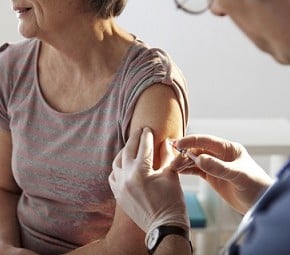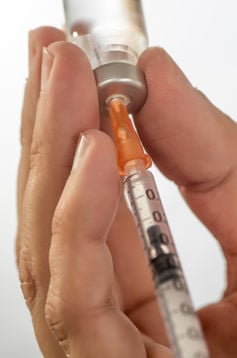

Most of us will receive the majority of our vaccinations in childhood. But Australian adults still die and become disabled from vaccine-preventable diseases. Immunisations are therefore an important preventive health measure at all stages of life.
So, when might adults need to be immunised?


Top Comments
Hello,
I just want to say a big thankyou for taking on-board the feedback and putting together this article on adult immunisation. It is very important. Would you consider flagging it as the cover article for a while to really get the word out?
Cheers
When you get your baby immunized through the local council, you can often get shots for yourself at the same time - just ask them - and it's all on medicare.
When my baby had his first 2 month old shots, my partner and I also got whooping cough/diptheria/tetanus boosters as well, as the immunity for these often wanes by adulthood.